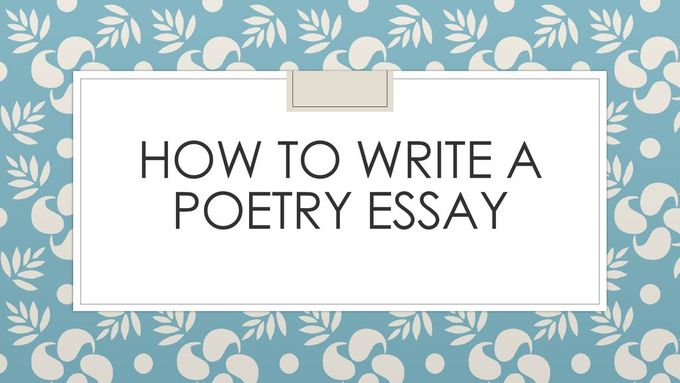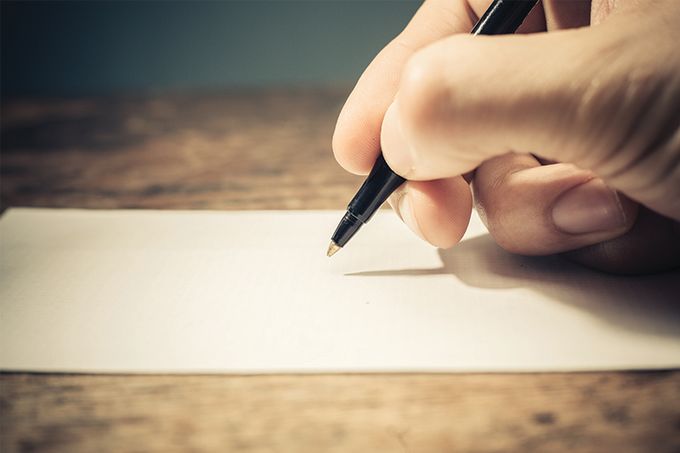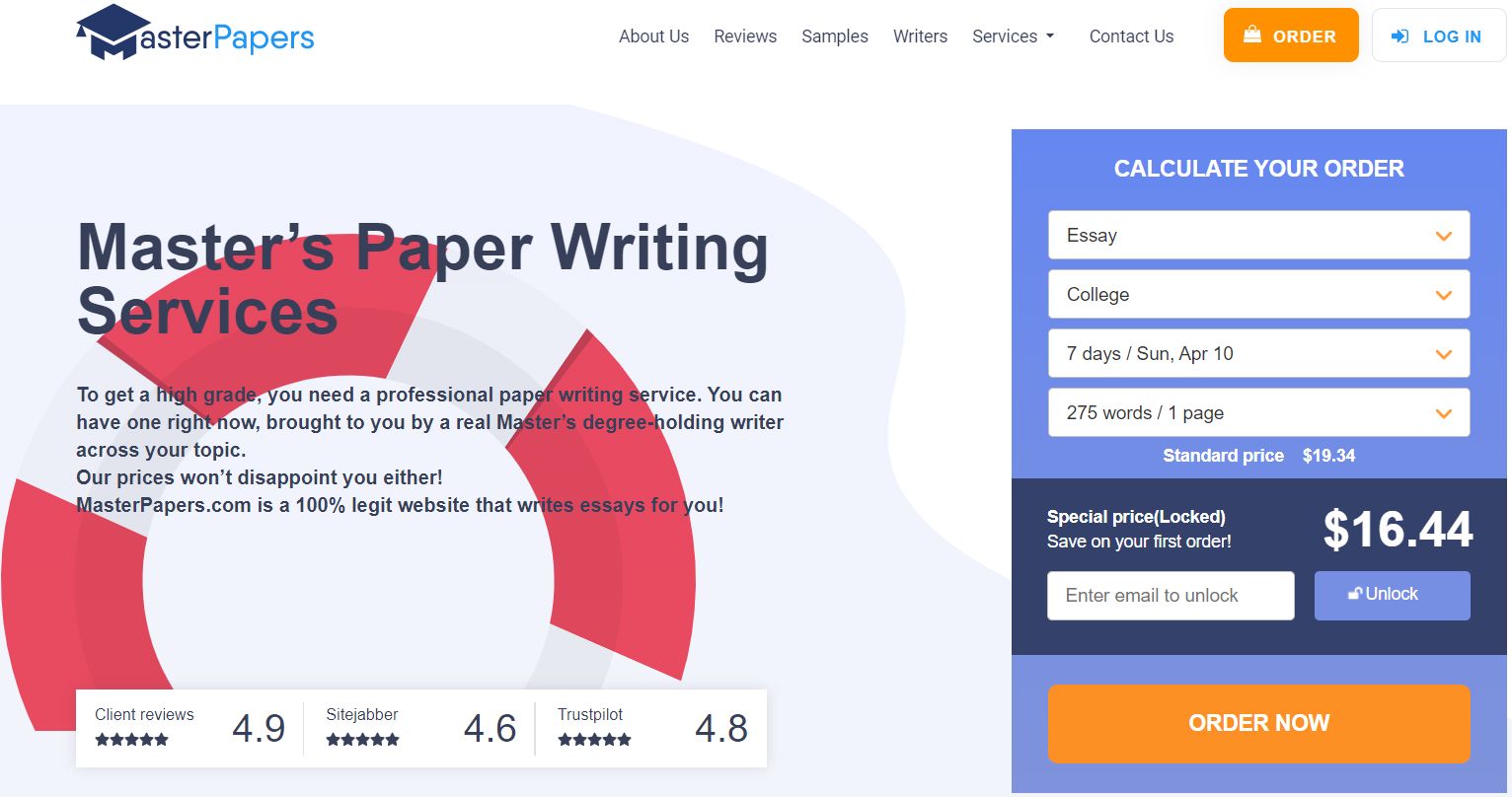How to Write a Poetry Essay
Publication Date: 07 September 2022
Students are afraid of poetry essays for good reason. Everybody knows that such essays are some of the most sophisticated and difficult academic papers to write. Not only do they require a student to master a poetic piece and to fully understand its meaning, but they also have some unique demands on the language and structure. A good poetry essay example is rare, and even if you do come across a decent sample – it is highly unlikely it will be a perfect fit for your particular essay prompt and assignment requirements.
So, there is little alternative to learning the art of writing a poetry essay. In this article, we are happy to offer you some basics, such as structure specifics, as well as advanced stuff, including a detailed action plan and valuable bits of advice.

Prepare in Advance
The sooner you start reading and rereading the required poetry pieces, memorizing main and secondary characters, and analyzing texts, the better. You can even start a separate notebook in order to schematically enter plot collisions and character names into it. Find a good poetry essay sample, even if it doesn’t perfectly fit your assignment, and take notes of its key elements.
It is also worth starting to prepare for writing your poetry essay in advance. Train your hand and mind: the content of your essay in the actual assignment will be different from what you write at home, but the structure should always remain rigid.
The deeper you know the material; the easier it is to work on a poetry essay. For full disclosure of the topic, it is necessary to read the entire work, and not its brief retelling.
While reading, pay attention to the author’s style, speech techniques, means of expression, and assessment of current events by the author and his characters. At the same time, it is important to understand the historical period described in the work – what events inspired the author to create this poetry sample.
Reading poetry on your own allows you to develop your unique speech, and enrich your personal vocabulary. The larger the amount of reading, the less punctuation and grammatical errors you will make in your essay, and the easier it will be to express your thoughts.
Practice is the Best Friend
Try to practice writing as much as possible. The ability to express your thoughts requires some training. By copying ready-made essays, you do not develop your own writing style. In addition, teachers with experience can easily distinguish a copied poetry essay example from a unique work.
Show your writings to relatives and friends, and ask them to assess your work. As an expert, choose a person whose speech seems literate to you – their advice will be more valuable.
Stick to the Algorithm
Whatever topic you choose, always focus on a clear plan and an unchanged algorithm for writing a poetry essay.
- When choosing a topic, make sure that you know the work well and can write a full-fledged story about it in detail.
- Make a structure! Keep it short but clear and help your essay look convincing.
- Write abstracts that can better reveal the chosen topic. Each thesis should be one or two sentences, or even just a few words.
- Write a draft poetry essay. This will help not only to avoid grammatical errors, but also to see the composition from the outside and understand what it lacks. However, keep a close eye on the timeline, laying down at least a third of the total time for writing the final version.
- Copy the material to a clean copy, but do not forget to carefully reread the work before submitting it to your professor.

Important Prerequisites to a Perfect Poetry Essay
- Matching theme and content. If the essay is written on a given topic and your position is stated correctly, you will receive maximum points for the work. In case of inconsistency between the topic and content, you can get much fewer points. Little points will be given for a topic that is not fully disclosed. If the essay is off-topic, you will get zero points.
- Work with a sample text of a poetic piece. A detailed and qualitative analysis of such works is required (a good poetry essay example will help tremendously).
- Compositional integrity and logic. What matters here is structure, lack of repetition, and sequencing.
- Compliance with speech rules. Beautiful and correct English is the basis of any poetry essay example.
Structure of a Poetry Essay
In order to correctly and fully reveal the topic of the essay, information should be submitted according to the plan, which provides for the presence of 3 structural components:
- Introduction
- The main part
- Conclusion
The first introductory part identifies the main problem. You can start with a rhetorical question or with an interesting quote from a work. The introduction may also contain a few words from the biography of the author, facts about the history of writing, or the events taking place at that time.
The main part analyzes a work of poetry in accordance with a given topic. The main thing is to avoid retelling and using information that has nothing to do with the topic. It should be outlined why your position coincides or does not coincide with the position of the author himself.
The conclusion is a summing up, a generalization of what has been said. It is necessary to write briefly and succinctly. Here you can express a personal attitude to the work and its characters, but without excessive laudatory assessments.
Recommended Action Plan
A consistent presentation of thoughts helps to give the poetry essay a logical structure and a finished look. Without an outline, a flow of thoughts can look chaotic, it is easy to lose sight of important points and key conclusions.
- The main task of any essay is to reveal the topic as fully as possible. When making an outline, constantly ask yourself the question: how will this or that point help answer the questions indicated in the assignment?
- Write down the facts of the biography of the author known to you that are related to the given topic, quotes from his works, and historical events that accompany the poetic piece in focus.
- Take notes of your personal thoughts and judgments that arose in the course of reading the work. What exactly prompted you to this or that conclusion, and why?
- Draw parallels between the author’s opinion and style and your personal attitude to the work:
- How relevant today is the problem described by the author?
- What characters did you like and why?
- What is the main conclusion you made after reading the work? What seemed to you especially important and significant?
- What artistic techniques by the author made the strongest impression on you?
- Make the first sketches of the plan. Remember that your poetry essay should consist of three main parts: introduction, main part, and conclusion. The introduction can be very short and answer one or two questions:
- What will be discussed in the essay?
- Why did you decide to touch on this topic?
- The main part takes up most of the composition. Briefly outline three main points:
- What does the author want to convey in his work? (reinforce your answer with a sample of speech from the work)
- What do you think about this work?
- Why does your assessment coincide or not coincide with that of the author? (Add arguments, personal experience, including a good other poetry essay example, current attitude to the problem, etc.)
- The conclusion may consist of several sentences and briefly summarize the main idea of the essay.
- Write a draft version of the essay, clearly adhering to the sample outline composed earlier.
- Read the initial version to check the text for integrity, logical sequence, structure, and absence of grammatical and punctuation errors. Do not try to evaluate all the parameters at once. It is better to reread it several times, focusing on one thing – either on errors or the content. Remove bulky wording and minor details. Make sure you open the topic according to the outline.
- Rewrite the essay on a clean copy, set it aside for 10 minutes, and check the grammatical errors again.
Valuable Advice
To write a good poetry essay in compliance with all the requirements, you should pay attention to a few expert tips:
- In the text, make only those statements that can be supported with quotations from the source.
- Consider your writing style.
- Make sure that there is a logical relationship between the introduction and the conclusion.
- When writing an introduction, try to remove the first 2-3 sentences. Perhaps the text would be better without them?
- Carefully reread what is written to eliminate all possible errors (punctuation, grammar, spelling, speech).
- If the essay sample provides for the presence of an epigraph, then it should be written without quotes and brackets. There is no dot at the end!
- The main goal of a poetry essay is a complete disclosure of the author’s thoughts and style. As part of the planning process, it is important to ask yourself how well each paragraph addresses the issues identified in the title.
It is advisable to take notes of the initial thoughts and judgments during the preliminary reading of the work, and then analyze the reason for their appearance. When you have the first draft version ready, put it aside for a while, so that later you can re-read the text and identify errors that could have gone unnoticed.
If you follow the above tips, find a good poetry essay example, and approach the task with all responsibility – success is guaranteed. And do not be upset if you can’t immediately write easily and beautifully. The main thing is to be patient and gradually bring what you started to its logical conclusion.






